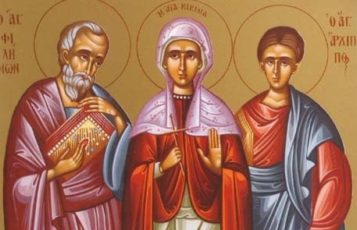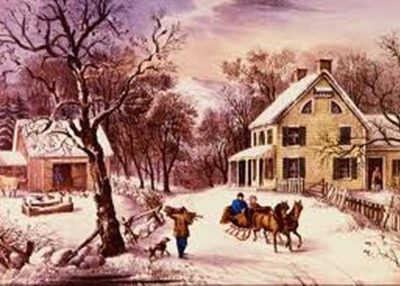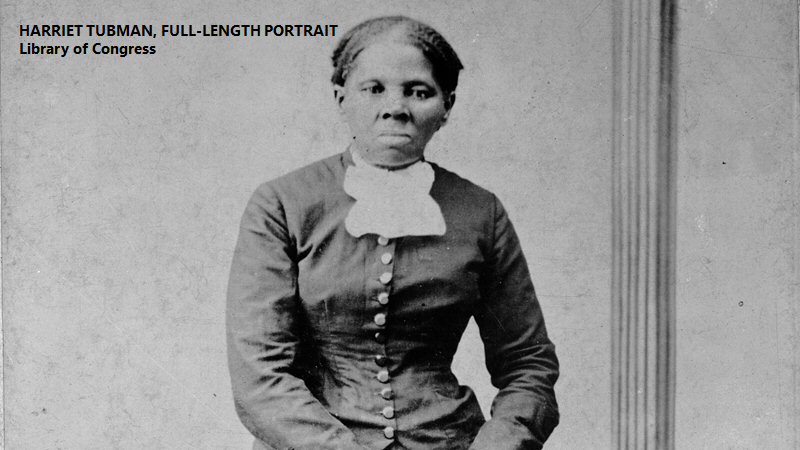Apphia Wife of Philemon

Apphia is only mentioned in Philemon and is believed to be the wife of Philemon. She had a home church in Colossae and was known for hospitality. Just like today Apphia had to contend with false religions. Paul refers to her as being beloved and included her as a fellow laborer. She lived in troubling times in Colossae and faced the same type of influence that we are facing today.
Philemon 1:2-6
Apphia lived in the city of Colossa in Phrygia. Paul refers to her as being beloved and our fellow laborer. Paul always kept her in his prayers. Apphia is suggested to be the wife of Philemon, since she is mentioned right after the greeting of Philemon, our dearly beloved and fellow laborer. Apphia is also identified as being beloved. Archipus is believed to be the son of Philemon and Apphia. Apphia and Philemon was wealthy supporter of a home church in Colossae. They were known for their hospitality and their home had become a center of Christian influence. (Philemon 1:5-6).
According to tradition she was martyred during Nero’s persecution. (Elwell. 1988. P. 142). Being the wife of Philemon, Apphia would have been entitled to be consulted in the forgiveness and emancipation of a slave. (Cowan. 1916-1918. P. 86). First century Colossae was a cosmopolitan city of native Phrygians (were an ancient Indo-European people belonging the nation in western Turkey). There was the Greek and Jewish influence. The newly formed Christian church of Colossae had to contend with the common worship of Cybele, the Phrygian fertility and nature goddess of Asia, Isis, the Egyptian oriental goddess and the Emperor. (Belleville. 2012).
Paul was writing on behalf of Onesimus the slave of Philemon. While Paul was in prison he became friends with Onesimus and was returning him to his master, Philemon. Paul wrote a letter to intercede for him and that Paul was sending him back “no longer as a slave, but a brother beloved.” (Philemon 1:10, 16).
Apphia was part of the Christian of Colossae an ancient city of Phrygia, was about 100 miles east of Ephesus. Today it is a part of Turkey. It is about 11 miles from Laodicea. This church was probably established on the third missionary journey of Paul. Paul did not establish the church at Colossae. (Colossians 2:1). (Silva. 2011. P.55).
This is the only time Apphia was mentioned in the Bible so not much is known about her. We do know she was involved during the time there was major danger for the Colossian church. It was the look at the first symptoms of the practice of Gnosticism. Gnosticism was related to knowledge, especially mystical knowledge. It was considered to especially been rooted in Greek philosophy and teachings of Plato stating that the knowledge of God belonged to the higher reason, and identified the spiritual man with the philosopher. (Ferguson, 2005. P. 92). Paul was concerned with this practice. Paul warned the church to avoid any man that beguiles to deceive by false reasoning (#3884. Strong’s.2001 ) with enticing words that is specious discourse leading others into error. (#4086. Strong’s. 2001 ). (Colossians 2:4).
Just like today Apphia had to contend with false religions. Paul refers to her as being beloved and included her as a fellow laborer. She persevered and continued to spread the Gospel of Jesus Christ. This is a positive attribute that we, as Women of Christ, should be following. We should be fellow laborer for the spreading the Gospel of Jesus Christ.
The Book of Jude also gives us a warning about false religions. Jude was a bond-servant of Jesus Christ, and a brother of James. (Jude 1:1). He warns Christian about the un-godly men trying to infiltrate the Christian church. These ungodly men would stealthily introduce destructive heresies by turning the grace of our LORD into lasciviousness which is unbridled lust, excess wantonness (#766 Strong. 2001) and denying the only LORD God and our Lord Jesus Christ. (Jude 1:4).
What a wonderful attribute to have someone express of you that the communication of your faith may become active by the acknowledging of every good thing which is in you in Christ Jesus. (Philemon 1:6). It is our responsibilities as women of Christ to let our light shine before those we come into contact with, that they may see our good works, and glorify our Father with is in heaven. (Matthew 5:16). We must be able to recognize things are true, honest, things that are just, pure and are lovely, whatsoever things are of good report; if there be any virtue, and if there be any praise, these are the things to think on. (Philippians 4:8).
Reference:
Belleville, Linda L. (2012). “Philemon, Letter to” In , in The Lexham Bible Dictionary, ed. John D. Barry and Lazarus Wentz. Bellingham, WA: Logos Bible Software, 2012
Cowan, Henry. (1916-1918). “Apphia” In , in , vol. 1, Dictionary of the Apostolic Church (2 Vols.), ed. James Hastings. New York: Charles Scribner’s Sons
Elwell, Walter A. and Beitzel, Barry J. (1988). Baker Encyclopedia of the Bible. Grand Rapids, MI: Baker Book House.
Ferguson, Everett. (2005). Church History, Volume 1: From Christ to Pre-Reformation. Grand Rapids, MI: Zondervan
Silva,Moisés. (2011). The Essential Bible Dictionary. Grand Rapids, MI: Zondervan
Strong, Jame (2001).The New Strong’s Expanded Exhaustive Concordance of the Bible. Nashville: Thomas Nelson Publishers.
Cite Article Source
MLA Style Citation:
Holstein, Joanne “Apphia Wife of Philemon:.” Becker Bible Studies Library Oct 2014.<https://guidedbiblestudies.com/?p=1431,>.
APA Style Citation:
Holstein, Joanne (2014, October) “Apphia Wife of Philemon:.” Becker Bible Studies Library. Retrieved from https://guidedbiblestudies.com/?p=1431,.
Chicago Style Citation:
Holstein, Joanne (2014) “Apphia Wife of Philemon:.” Becker Bible Studies Library (October), https://guidedbiblestudies.com/?p=1431, (accessed).


